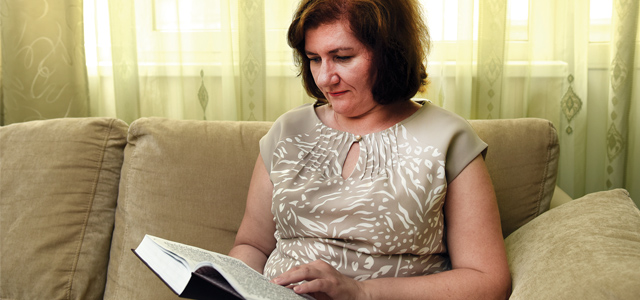As we head towards the annual, special celebration of Jesus Christ the King, the Bible reveals many powerful truths about the kingdom of God — and what it means to be part of it.
6 November — Haggai 1:15b-2:9; Psalm 145:1-5; 2 Thessalonians 2:1-5, 13-17; Luke 20:27-38
‘Now may our Lord Jesus Christ himself and God our Father, who loved us and through grace gave us eternal comfort and good hope, comfort your hearts and strengthen them in every good work and word’ (2 Thessalonians 2:16-17). These are words of hope and comfort and we should take strength from them. However, these are not words of ease or self-indulgence. They are there for ‘every good work and word,’ and we follow the Word of God, who is in Christ, and leads us on the way of the cross — the way of self-giving love that gives of one’s best to bring out the best in others and the world. We have strength and comfort from God because we are called to a tough and costly love of God, lived in loving service of others.
13 November — Isaiah 65:17-25; psalm 12; 2 Thessalonians 3:6-13; Luke 21:5-19
Not a cheery set of readings this week. If you want to think about the return of Christ with some sense of triumphalism, Jesus reminds us of the suffering that comes with it – betrayal, death, hate and the like (Luke 21:5-19). The key message is to just put our heads down and get on with the job of being disciples, for ‘by your endurance, you will gain your souls.’ (Luke 21:19) Similarly, Paul exhorts us not to be idle but “Brothers and sisters, do not be weary in doing what is right.” (2 Thessalonians 3:13) As we come to the end of the liturgical year, we have the encouragement to keep going and to keep working hard.
20 November — Jeremiah 23:1-6; Luke 1:68-79; Colossians 1:11-20; Luke 23:33-43
We end the liturgical year with the celebration of Christ the King. But ‘kingdom’ is a fraught word. We rightly talk about the ‘Kingdom of God,’ but we also need to be highly careful to avoid the ideology of theological and ecclesial hierarchies which come with ‘kingdom.’ It is the Christ who was crucified and who we follow on the way of the Cross, and whom we name ‘King.’ It is Christ of the stories we have celebrated for the past 12 months, those about God’s ‘anti-kingdom’ (one opposed to, and a reversal of, the kingdoms of this world). It is the place of the communion of God, where the servant is king, and where the last in the eyes of this world shall be first and the first are last. So, may we look to the renewal of our understanding of God’s radical communion with us and for us, as we prepare to celebrate again the incarnation in Christ.
27 November — Isaiah 2:1-5; Psalm 122; Romans 13:11-14; Matthew 24:36-44
A new season. A new liturgical year. The readings this week set us up well for Advent, the season where we prepare to remember the coming of the Christ. The readings from the early Scriptures (Old Testament) portray a triumphalistic dream. A hope of a glorious future with God, that puts God’s people at the centre. However, the New Testament readings provide a stark contrast. Paul writes to the Church in Roman, exhorting them to wake up and, “live honourably… not in revelling and drunkenness, not in debauchery and licentiousness, not in quarrelling and jealousy”. As we prepare for Christmas, which is a season of excess, what might it really mean to prepare for the coming of Jesus and his way of the Cross? The One who will return to bring the end of days, rather than the consumer dream of a baby God whose patron saint has become the icon of the magic of spending. This Advent, what will be your preparation for remembering the coming of Christ? How will you seek to better embody the discipleship of the way of the Cross, as we celebrate the incarnation of God in Jesus?
These reflections were prepared by Rev. Jon Humphries, Chaplain at Ravenswood School for Girls













